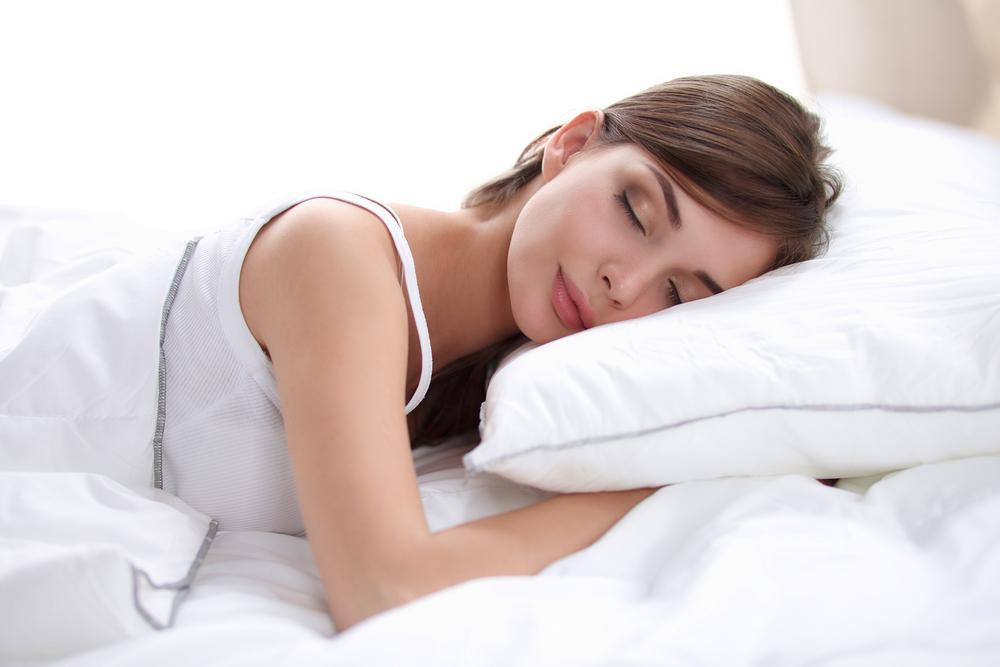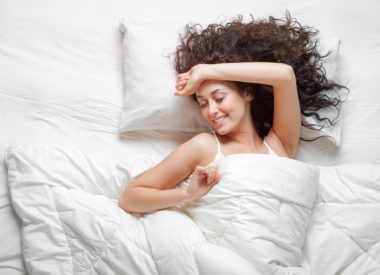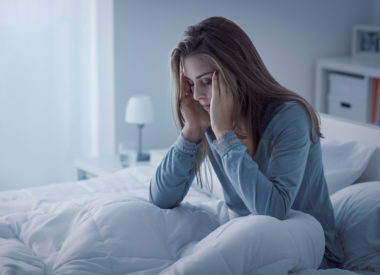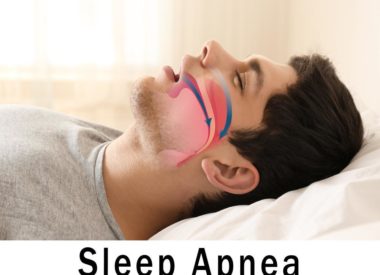Sleep and skin health: Beauty sleep is not a myth
Americans spend millions of dollars on anti-aging efforts these days. This seems to have changed what we think of as “beauty sleep.” Today, the phrase has come to suggest the nightly ritual of applying facial products at bedtime, and not the act of sleeping itself.
But what about swapping that extra time at night, spent on the application of so-called “beauty products,” for more sleep? The evidence shows that quality sleep is necessary to defend against premature aging. And sleeping comes free of charge; your body is built to preserve and restore itself during the act of sleeping, after all.
You likely already know how much high-end cosmetics, spa facial products, or beauty services like peels and Botox injections cost. Maybe money is not the real issue when it comes to addressing concerns about aging and attractiveness. Maybe what you should be spending is not money, but time. Time for sleeping.
The health effects of beauty sleep
Skin health is more than skin deep
When we talk about beauty, and aging “gracefully,” what we are really talking about is optimal skin health.
Let’s not forget: our skin is the largest organ of the body.Its made of millions of cells which grow, die, and are quickly replaced by new skin cells.
The effect of “radiant” skin relies on that speedy replacement of dead skin cells, which takes place you guessed it!while we sleep.With less sleep, we have slower skin-cell turnover, which is made evident by a dull complexion.
Our skin is designed to not only hold our organs, bones, and muscles together in one neat package, but to provide a protective barrier, to act as a thermo regulator, and to dispose of wastes.
Did you know that we perspire more at sleep than we do during the day while we are at rest? Perspiration carries toxins, excess salts, and other waste products from the body at the end of the day. An added benefit is that this natural moisturizer at the skins surface hydrates and plumps the skin.
The skin also follows its own circadian rhythms; during the day, it works to ward off insults like ultraviolet damage, pollution, pathogens, and traumas (anywhere from paper cuts to major lacerations to burn wounds).
However, at night, the skins rhythms shift to cellular repair and restoration. Without adequate sleep to maintain these rhythms and functions, the skin loses tone, color, elasticity all the things we associate with aging.
Even the act of lying down has a benefit. Doing so allows gravity to gently, if temporarily, smooth the skin on the face and neck, leading to fewer wrinkles.
Sleep keeps our hormones balanced
Hormone balances are critical to good health and are a big part of getting your beauty sleep.
- Human growth hormone (HGH), released during sleep, helps to restore and repair cell damage as well as regenerate skin, muscle, and bone cells. This regeneration relies on proteins as building blocks; sleep slows the breakdown of these proteins to facilitate new growth.
- Collagen, a hormone stimulated by HGH, is responsible for firm, youthful looking skin, hair, and nails. Collagen is released in high levels to the bloodstream during sleep for this purpose.
- Unlike collagen, the stress hormone, cortisol, should not be present in high levels during sleep, as it is considered a wakefulness-regulating hormone. However, people with obstructive sleep apnea or insomnia may end up with higher amounts than what is considered healthy. This can lead to hair loss and acne, among other things.
- Melatonin is the hormone that fosters our transition from wakefulness to sleep. Inadequate sleep and erratic sleep schedules lead to imbalances in melatonin. We further interrupt the natural release of this hormone at bedtime when we look at backlit electronics like cellphones, tablets, or laptops at bedtime. The blue spectrum light they release delays sleep onset; nightly exposure can create the perfect conditions for sleep deprivation.
Sleep encourages good circulation
The body’s temperature intentionally drops slightly during sleep. One of the many benefits of this change is that it improves blood flow to the skin. Inadequate circulation means stagnant blood can pool in capillaries rather than move briskly throughout the vascular system.
Dark circles under your eyes and red rims around the eyelids are the results of poor blood flow. You notice them more readily mostly because the skin is thinner in these areas.
The raised red capillaries of the eyes, lending a “bloodshot” appearance, are also caused by poor circulation.
Blood flow also coincides with the strength and health of hair. Your follicles need regular circulation so that the blood stream can deliver key nutrients to help build new proteins, which eventually become strands of new hair. Without these nutrients, the hair that emerges from the roots is thinner, lacks luster, and breaks more easily.
The eyes are the window to your sleep health
Good sleep assists both the skin and the kidneys in efficiently flushing salts from the body. Without enough sleep, these functions become suboptimal. Not drinking enough water further impairs this process, and imbalances show up in the eyes.
“Sunken” eyes are the result of dehydration and kidney stress. “Puffy” eyes are evidence of water retention caused by too much sodium in the bloodstream. Both can result from inadequate sleep.
How sleeping improves our inner beauty
Adequate sleep helps us to maintain solid emotional and mental health. We are more alert and “bright eyed,” our mood improves, and our ability to make decisions or deal with stress is optimal. The result? Positive self-worth, confidence, and overall well being.
These traits show in our facial expressions, gestures, and postures. We laugh and smile more often. Our overall body language conveys strength in social functioning and contributes to our general attractiveness.
If you don’t get your beauty sleep
The obvious signs are everywhere: drooping eyes, wrinkles, sallow skin, brittle hair, dark circles, unpleasant facial expressions that convey our need to get 8 hours of sleep a night. But sleep deprivation can also age us prematurely from the inside out.
- Weight gain happens when we don’t get enough sleep. Our bodies can’t efficiently regulate metabolism and hormone balances without adequate quality slumber, leading to unwanted pounds.
- Less sleep leads to ongoing inflammation in the body. Without sleep, there’s not enough time for the body to fight disease, repair damage, or restore itself. Inflammation can lead to acne breakouts or flareups of skin or scalp conditions.
- A suppressed immune system means the skin is more susceptible to attacks by damaging microorganisms. Your immune system may not be able to stave off rashes or other skin problems that result.
- Chronic disease is a guaranteed result of long-term sleep deprivation. Remember, sleep is meant to provide the body with ample time for healing, repair, and recovery.Think about it: most people who suffer from diabetes, cancer, heart disease, stroke, high blood pressure, obesity, depression, or other ongoing medical problems generally show it in their overall appearance.
It’s easy in today’s time-pressed world to fall into patterns of poor, inadequate sleep. Consumer options promise much, but for a price: cosmetics, spa vacations, plastic surgery.
The truth is, if you really want to reclaim and maintain the glow of youth and the fabulous hair, bright eyes, and effervescent personality that go with it there’s no better (or more affordable) solution than to get your 8 hours of uninterrupted sleep every night.
Sources:



